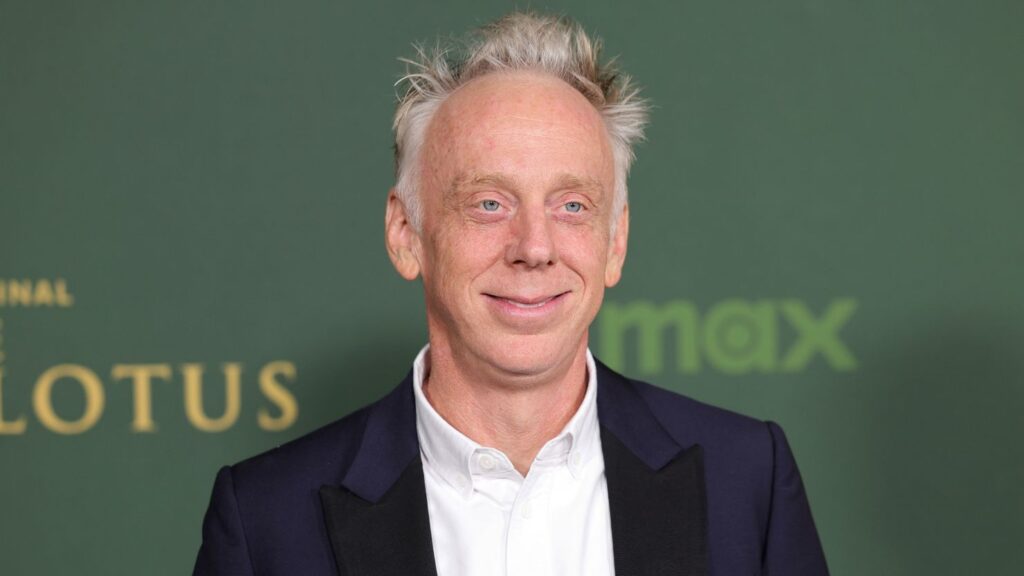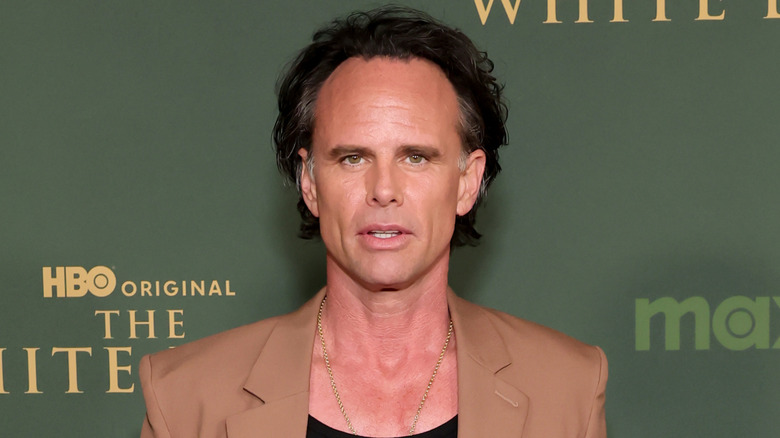
I’ve been dropping in on the various post-White Lotus interviews to get more context on the season. I don’t like to do this at the beginning of a show because I feel like I might stumble across spoilers. But at the end of a show, especially one I love, I want to know everything I can about it.
So, I want you to think about your journey as a writer and why you’re doing this. I want you to imagine what it might look like if you’re super successful. If it’s anything like what *I* would imagine, I would say that Mike White is experiencing the pinnacle of what success looks like as a screenwriter.
He’s got the most talked about show in the world at a time when it’s harder than ever to stand out in television. Despite the massive success he’s found through the first two seasons of White Lotus, the third season is even bigger, becoming a bona fide phenomenon. The finale tallied a 30% increase over the second season’s finale. And the show has become a social media juggernaut, spawning more memes than a presidential election.
So I was surprised when I began listening to Mike White’s recent interviews and noticing that he didn’t sound happy. He seemed jostled by some of the show’s criticisms (that the plotting was too slow, that there were no police scenes after the giant shootout, that Lachlan would make a smoothie without cleaning the blender first), and he ended up telling Howard Stern he needed to “get away from all this for awhile.”
This both terrified and fascinated me. Here this screenwriter is, experiencing the pinnacle of what it’s like at his profession, and he’s not happy. If there’s anybody who should be ecstatic about a writing accomplishment, it should be Mike White. Yet here he is getting riled up about these criticisms people have with his mega-successful multiple-award-winning show.
The more I thought about this, the more I realized that screenwriters are an unhappy lot. They’re always complaining. They’re always frustrated. And they always think that the next hill they’re able to climb will solve their happiness problem.
They think, if I can just get an agent, I’ll be happy. But then they aren’t because they learn agents are not magicians. So they say, if I can just sell something, I’ll be happy. But then they aren’t because the money they receive only goes so far. So they say, if I can just get something produced, I’ll be happy. But then they aren’t because a lot of the show/movie gets rewritten and the product ends up subpar. So they say, if I can just make something that gets a lot of critical acclaim, I’ll be happy.
And that’s the one you’d think would be impossible not to be happy about. But guess what? Mike White shows that you can still be unhappy when you get to the top of the screenwriting mountain! Because when you make something critically acclaimed, you face a new obstacle – expectations. And you’re never going to be able to make everyone happy. So if your goal is to have every single person love your show, you will never ever ever be satisfied.
Why do I bring this up?
Because artists are, sadly, predisposed to being miserable. Especially writers. And if we’re never going to celebrate our wins, what’s the point of doing this? If you’re going to be just as frustrated with a giant hit show as you are “only” getting to the second round of the Nicholl Screenwriting Contest, then why even bother?
The truth about screenwriting is that there is no such thing as a perfect script. Because in order to write a great script, you must sometimes do the “wrong” thing. You must sometimes write an unlikable protagonist. You must sometimes write on-the-nose dialogue. You must sometimes have a character do something that a real person wouldn’t do in real life, like make a smoothie without cleaning out the blender first. And all of these things are technically going to make your script “imperfect” but that’s what makes the script great! It’s that splash of imperfection.
Scripts are like people. The most interesting ones have flaws. If a script is “perfect,” it’s like looking at someone who’s had 15 cosmetic procedures on their face. Sure, their face is “perfect,” but that person is never going to be as interesting to look at as, say, Adrian Brody, with his big nose, or Amie Lou Wood, with her funny teeth, or Walton Goggins, with his adventurous hairline.

You don’t want to purposefully aim for your scripts to be imperfect but you want to follow your heart when you write and trust yourself that it’ll be okay. As long as those imperfections are contributing positively to the overall story, you’re good.
One of the criticisms that Mike White seems to have taken offense to the most is his handling of the shootout and the way the bodyguards acted (they originally chased after Rick then easily gave up). Was it perfectly done? No. But you know what? I thought nothing of it at the time. I only found out afterwards that people had issues with it.
White actually talks about it. He says he doesn’t do gunfights in his films. His films are always character-driven. So it was not something that he was very good at.
You wanna know why I thought nothing of it at the time? Because I was invested in the characters. That’s what Mike White knows that not enough writers know – if you get the characters right, the majority of viewers/readers will not care about your errors. 1) Create interesting characters with flaws that arc over the course of the story. 2) Create interesting relationships with the other characters that contain conflict that needs to be resolved. If you do those two things, 99% of people won’t care that the shootout was sloppy. From everything I saw on social media, the parts of that scene that fans focused on most were the tragic death of Chelsea and how Laurie comically sprinted away from the shootout like a bat out of hell. They focused on the character stuff.
Look, if people are talking bad about your script? If people are talking bad about your show? THAT’S GREAT. That’s all that matters. Because the worst thing that can happen when you release a show or movie is not that you get some criticism. It’s that NOBODY CARES. Nobody talks about your show at all. Did anybody here know they made a TV adaptation of the movie, Cruel Intentions? Yeah, they had a full season of it. Did you know that? No. Nobody does. Because nobody talks about that show.
THAT’S the worst thing that can happen. If people are complaining about your show, it means they care!
I guess I’m sad that Mike White is sad. This should be the happiest time of his life. And I feel like so many people in this business are like him. I just met this fitness influencer who recently gained a ton of followers on social media and she was telling me how upset she was about various issues that had come up with her success (more haters being the main one). And I’m thinking to myself, “You’ve got one million followers. If you can’t be happy about that, when are you going to be happy?”
Guys, writing is supposed to be fun. That’s why we got into it. If you’re unhappy, you’re probably focusing on the wrong things. Instead, shift your focus to the fun of telling a story – of coming up with a great character, or setting up the perfect payoff, or coming up with that amazing plot twist, or writing a great scene. And be kind to yourself. Celebrate the wins.
When your script is done, put it out there, hope for the best. But don’t tie your happiness to whether people like your script or not. You just can’t predict how people will react. If people love it, great. Ride that wave as long as you can ride it. But if they seem indifferent, you’re a writer. Come up with a new idea and write THAT. That’s what you do.
The quickest way to give up in writing is to become bitter and angry about it. Don’t do that! Write stories because you love to write stories and that way you’ll be happy at every stage of your success.

